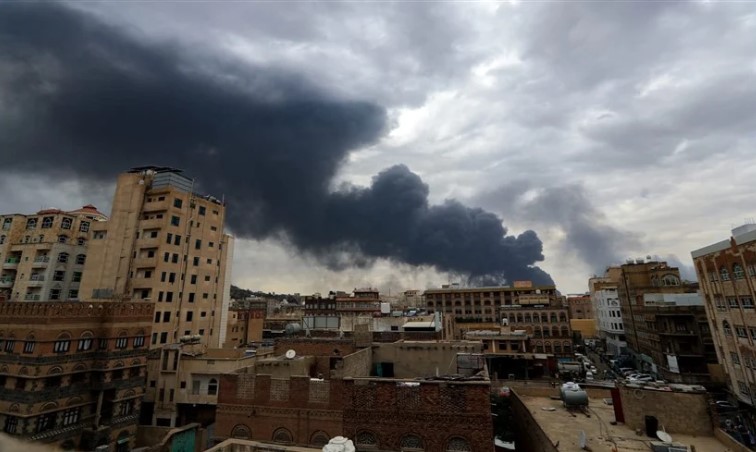Al-Naba’a:
In a significant diplomatic development that signals a notable shift in the regional landscape, the Sultanate of Oman has successfully mediated between the United States and the Houthis, resulting in the announcement of a ceasefire between the two sides. The move was welcomed both regionally and internationally, raising hopes that this truce could serve as a gateway to longer-term stability in the troubled region.
Observers hope the truce will pave the way for key political and economic shifts, beginning with the safeguarding of freedom of navigation in the Red Sea and extending to the easing of tensions ahead of U.S. President Donald Trump's upcoming visit to the Middle East, which includes stops in the UAE, Saudi Arabia, and Qatar in mid-May.
Dr. Youssef El-Sharqawy, Egypt’s former ambassador to Yemen, said the ceasefire reflects a "positive spirit" currently prevailing between Washington and Tehran. He noted that the success of the fourth round of indirect talks between the two countries—mediated by Oman—could increase the likelihood of the truce holding for a longer period.
He added that Washington might exert pressure on Israel to refrain from launching further strikes on Yemen to avoid disrupting the de-escalation process.
Egypt welcomed the agreement, highlighting its impact on ensuring freedom of navigation in the Red Sea—an emphasis echoed by Oman’s Ministry of Foreign Affairs in an official statement. The statement confirmed that neither the U.S. nor the Houthis would target the other, including American vessels in the Red Sea and Bab al-Mandab.
Muscat clarified that this understanding followed "intensive discussions and communications" with both parties to de-escalate tensions and ensure the smooth flow of international commercial shipping. The statement expressed gratitude to both sides for their "constructive approach" that led to this outcome.
White House spokesperson Karoline Leavitt described the agreement as a “major victory,” stating that President Trump had fulfilled his promise to "restore freedom of navigation in the Red Sea." She added, "The world is now safer under Trump’s leadership," referring to the firm policy recently adopted by Washington.
Despite the positive atmosphere, analysts caution that the truce remains contingent on both sides' commitment. Its continuation depends on regional stability—particularly in light of the escalating crisis in Gaza, which the Houthis could exploit as a pretext to resume attacks.
El-Sharqawy stressed that “putting an end to the genocide in Gaza is now more urgent than ever to prevent armed groups from using it to justify renewed escalation.”
Would you like this formatted for publication or turned into a press release?






Comments